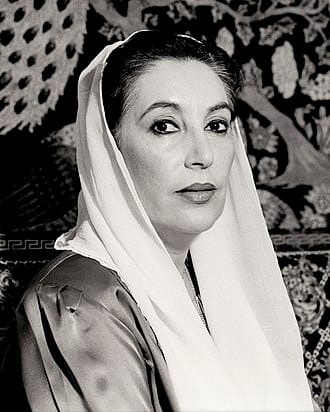Benazir Bhutto remains one of the most iconic figures in Pakistan’s political history. As the first female Prime Minister of a Muslim-majority country, her story is one of ambition, resilience, and a relentless pursuit of democracy. Leading the Pakistan People’s Party (PPP), she fought against numerous challenges while advocating for women’s rights and social justice.Benazir Bhutto: The Legacy of Pakistan People’s Party’s First Female Prime Minister

A Promising Start
Benazir Bhutto was born on June 21, 1953, in Karachi. Coming from a politically active family, she was destined to enter politics. Her father, Zulfikar Ali Bhutto, founded the PPP and served as Prime Minister. This background meant that politics was always in her blood.
After studying at Harvard University and the University of Oxford, she returned to Pakistan determined to make a difference. In 1986, after years of exile following her father’s execution, she stepped into the political arena. Her return was a breath of fresh air, and she quickly gained popularity, particularly among the youth and women.
Breaking Barriers
In 1988, Benazir led the PPP to victory in the general elections, becoming the first female Prime Minister of Pakistan. Her rise to power was historic, and she immediately set to work on ambitious reforms. She focused on education, healthcare, and women’s empowerment. Her government aimed to tackle poverty and bring about social change.
However, being a female leader in a patriarchal society came with its hurdles. Bhutto faced intense scrutiny and opposition, both from political rivals and the military establishment. Nonetheless, she remained steadfast in her mission to uplift the marginalized and advocate for democracy.
Struggles and Resilience
Bhutto’s time in office wasn’t without challenges. Her government faced allegations of corruption, and political instability was rampant. In 1990, her administration was dismissed by then-President Ghulam Ishaq Khan, citing corruption charges. This setback didn’t deter her spirit.
She returned to power in 1993, promising to bring economic stability and address social issues. However, her second term also faced criticism, and she was dismissed again in 1996. Throughout these ups and downs, Bhutto continued to fight for her beliefs, embodying resilience.
The Years in Exile
After her second dismissal, Bhutto went into self-imposed exile, living in London and Dubai. During this time, she didn’t stop advocating for democracy in Pakistan. Her determination to return was unwavering, and in 2007, she finally made her way back, greeted by enthusiastic crowds.
Tragically, her homecoming was overshadowed by violence. On December 27, 2007, she was assassinated during a rally in Rawalpindi. Her death was a profound loss, not just for her family but for the entire nation. It highlighted the severe risks faced by women in politics.
Enduring Legacy
Despite her untimely death, Benazir Bhutto’s legacy lives on. She broke barriers for women in Pakistan, proving that leadership knows no gender. Her commitment to social justice and democracy has inspired countless individuals, particularly women, to engage in politics.
The PPP, which she led, continues to honor her vision of a progressive Pakistan. Bhutto’s focus on education, healthcare, and poverty alleviation remains relevant as the party strives to address these pressing issues.
Conclusion
Benazir Bhutto’s journey is one of courage and determination. As a pioneer for women in politics, she challenged norms and fought for a better future for her country. Her story serves as an inspiration, reminding us of the importance of resilience and the fight for democracy. As Pakistan moves forward, Bhutto’s contributions will always be remembered as a beacon of hope for generations to come.


